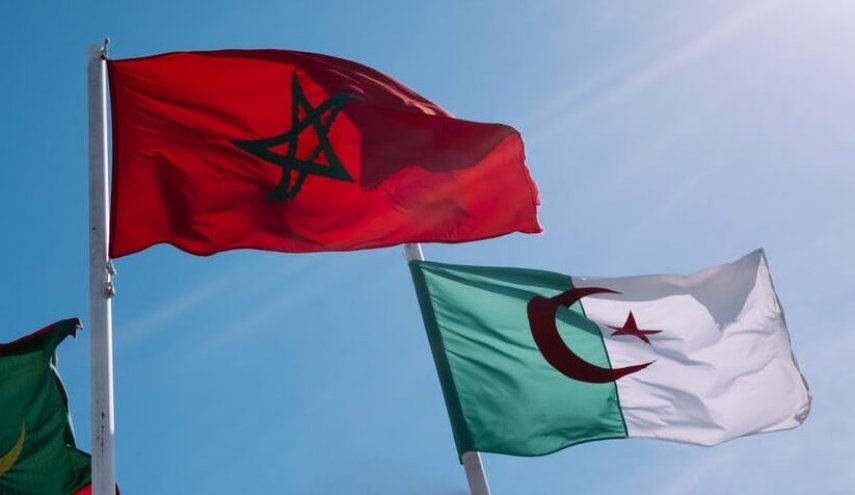Algeria considered the demarcation as a criterion when France left Algeria and believed that this was the framework of the two countries’ borders, but Morocco believed that to draw the borders, one should go back to the time before the arrival of French colonialism and therefore considered the two regions of Tindouf and Béchar, which are now part of Algeria, as part of its own territory. In this regard, the emphasis of the Moroccan nationalists on the “Greater Morocco” theory, which claims sovereignty over the Western Sahara, Mauritania and much of Algeria, has led to the perception of a security threat by the Algerian decision-making system. This perception of security was reinforced by Morocco’s initial move to invade Algeria, and eventually led Algeria to fully support the Polisario Front as an active players to prevent the dream of a greater Morocco. In this regard, Algeria has even agreed to cede part of its territory (the Tindouf region) to the Polisario Front as a desert settlement of the Sahrawi people and the Western Sahara government. Moroccan officials have repeatedly accused Algeria of backing the Polisario Front, saying Algeria should be an influential party to the talks, while Algeria believes it supports UN efforts to resolve the desert issue and is not a part of the conflict. Therefore, since the time of independence, relations between the two countries have been strained over the delineation of the sphere of influence, and since then, the accelerators and proxies have been used to intensify the tension, and any action by one of the countries has entailed the reaction of the other side for the of neutralization or for opposition.
Morocco and Algeria, with more than 1,700 kilometers of common land border, have not yet been able to seize opportunities, but have sought to threaten or hinder each other’s activities. For example, in 1963, the two countries entered into a war known as the “Sand War” over border disputes. The conflict ended with the intervention of Arab and African countries. Algeria began building a 271-kilometer retaining wall on its border with Morocco a few years ago, which is about seven meters high and two meters wide. Algeria says it was aimed at preventing drug trafficking through Moroccan territory and to ensure the country’s security. Morocco has already built a 100-kilometer wall on its borders, with an aim of fighting organized crime and preventing extremists from infiltrating Algeria. From 2011 to 2015, Morocco and Algeria purchased 56 percent of the weapons in Africa, according to the Stockholm World Peace Research Center.
The differences between the two countries have caused each to try to strengthen their defense capabilities, and there is even competition in launching satellites and fighting counterintelligence between Algeria and Morocco. The result of this competition is ups and downs in relations and not taking advantage of the opportunities of the two countries to strengthen the economy and convergence of the two countries and the region. On the other hand, the parties accuse each other of any action against national security. The recent fire in Algeria is one example, which has affected about 20 Algerian provinces and killed nearly 70 people; in this regard, the Algerian foreign minister announced that Morocco, with the complicity of the Zionist regime, was involved in the recent fires in the country and announced the severance of Algerian diplomatic relations with Rabat. One of the two countries’ challenges in the African Union is that Algeria was opposed to Morocco’s return to the African Union a few years ago, nevertheless, Morocco has returned to the Union and has so far been able to change the views of many African countries on the Polisario Front and its ownership of the desert. Also, the issue of opposition of some African countries to the Zionist regime’s membership in the African Union as an observer and even the bilateral relations between Rabat-Tel Aviv and the tension in Iran’s relations with those countries can be searched in the differences between Algeria and Morocco and the way of looking at the Polisario and the territorial politics of the two countries. The ban on Moroccan passenger and military flights over Algerian airspace and the violent talks between the two countries’ foreign ministers at the recent UN summit also reinforce the possibility that the diplomatic war between Algeria and Morocco will escalate in the coming days.
Although the African Union manages the crisis like the Renaissance Dam in the eastern part of the continent, and the Arab countries, in addition to playing a mediating role, want restraint of both countries, but the intervention of countries in the region and beyond and the confrontation of the politics of the borders at the time of independence with the idea of Greater Morocco, shows the continuation of this crisis and its regional spread, and a short-term perspective cannot be drawn for it. However, Morocco is pursuing its historic objective with an active continental foreign policy and a policy of recruiting through economic aid.










0 Comments